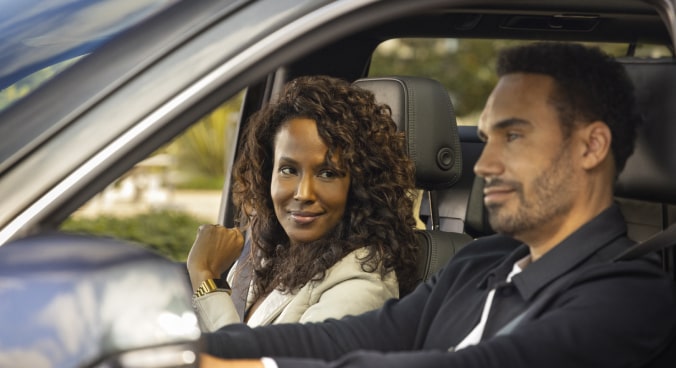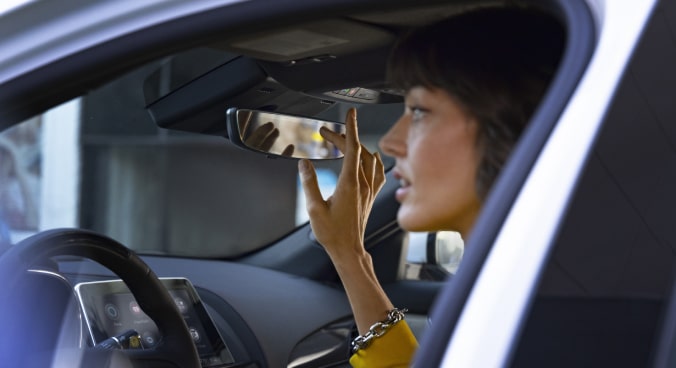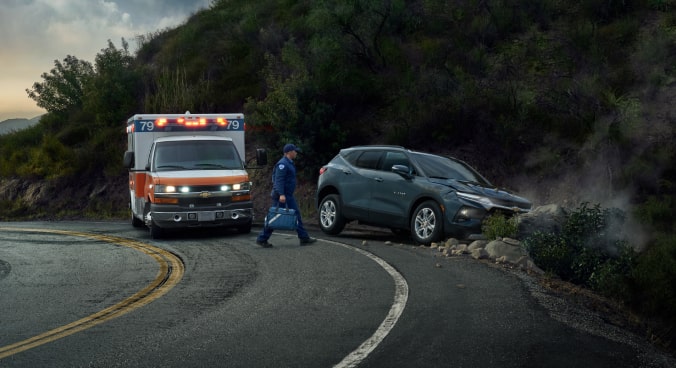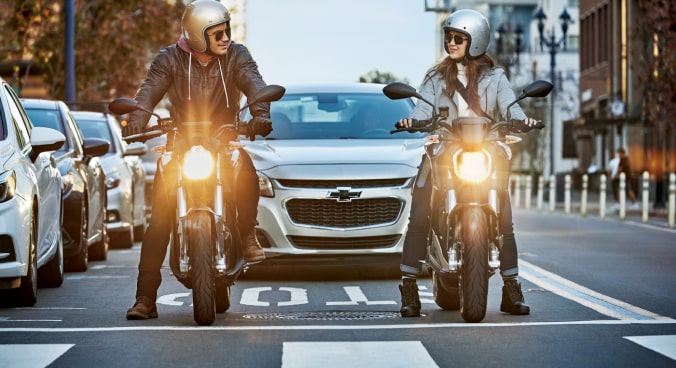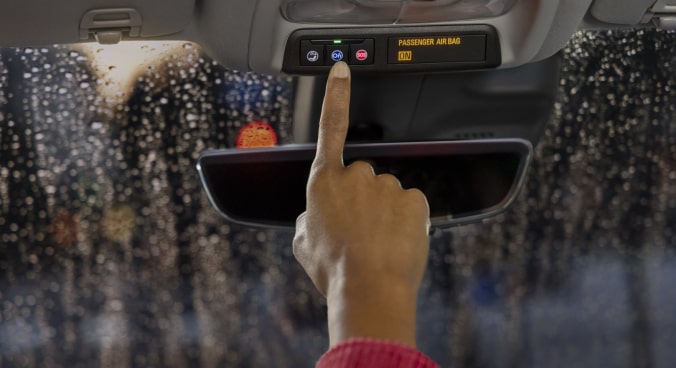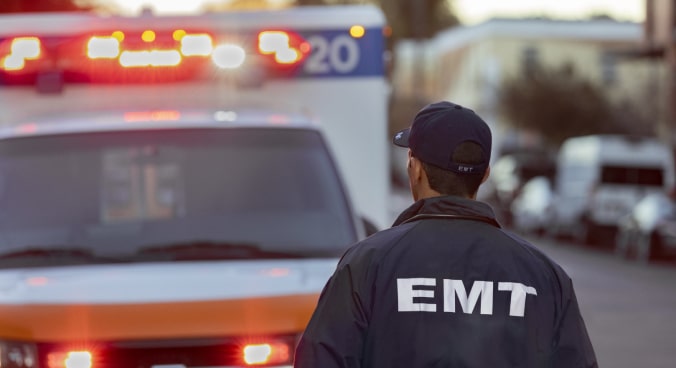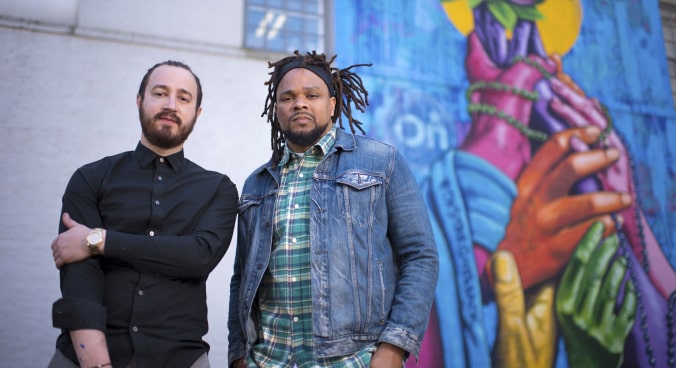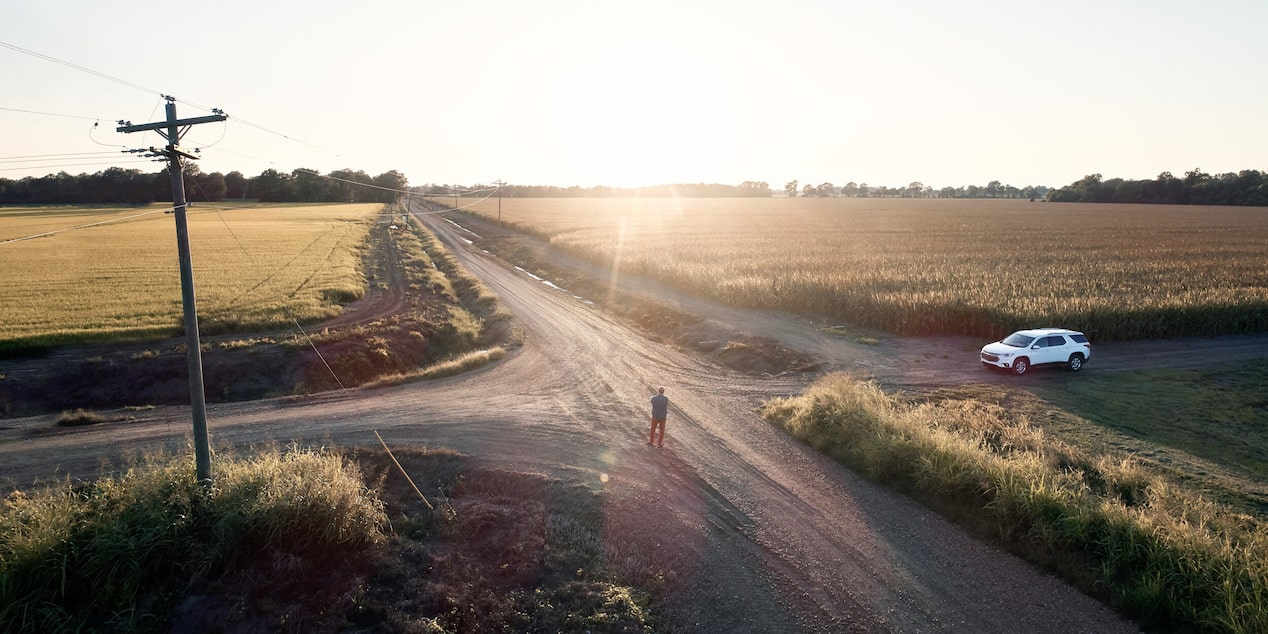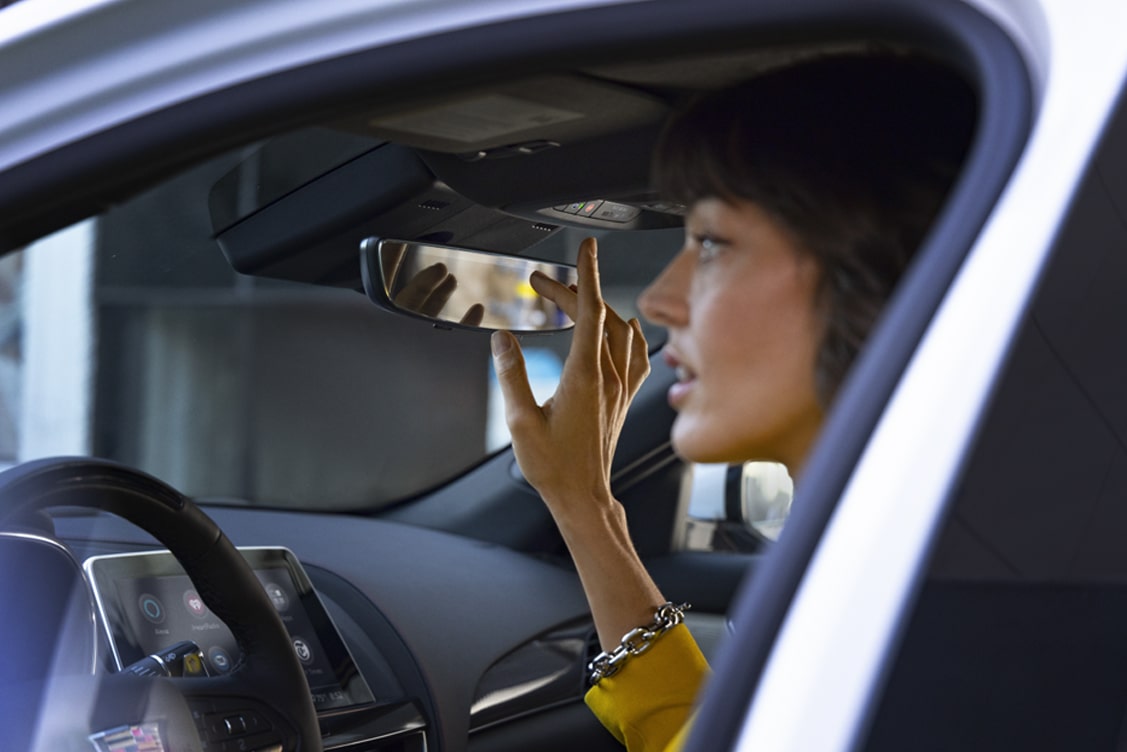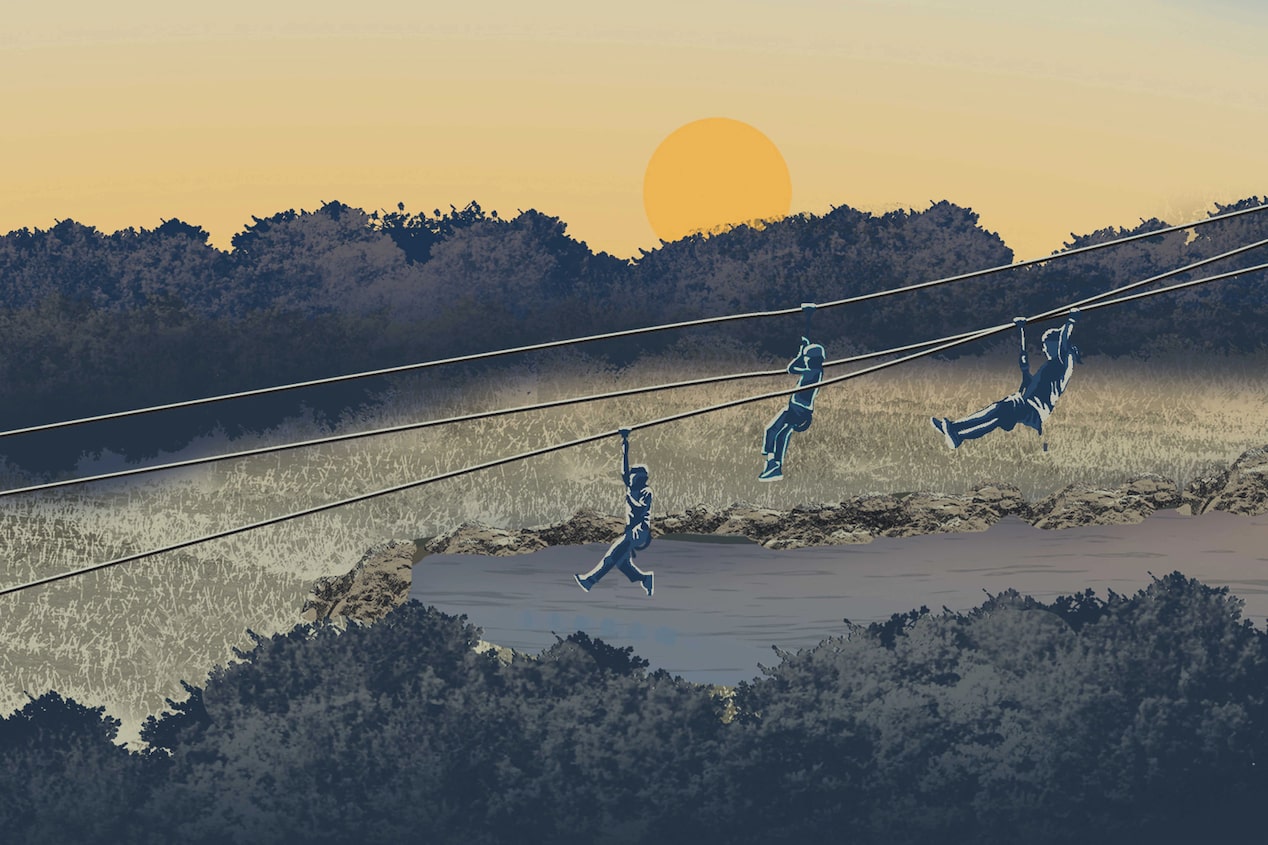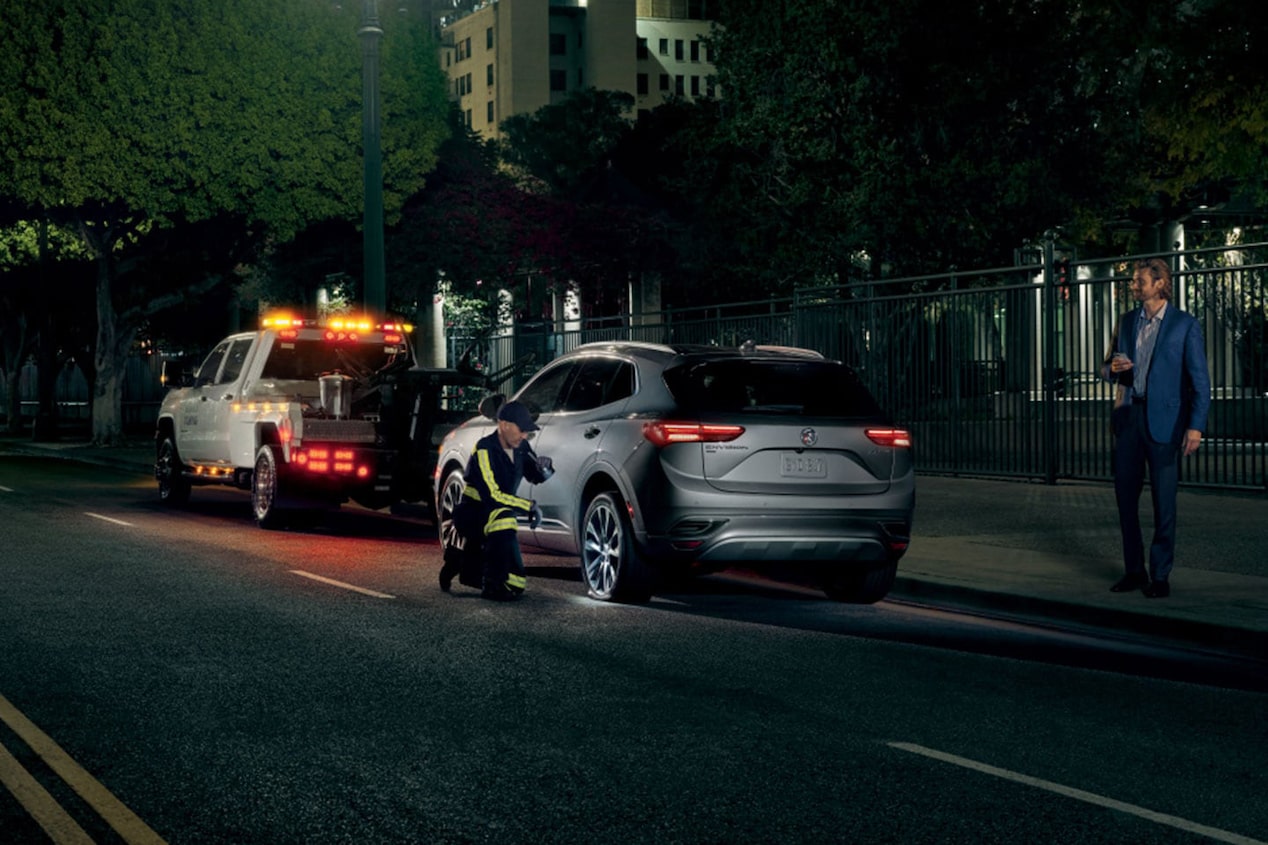Searchin’ for blues and barbecue in the promised land
Out there
OnStar always wants you to be safe Out There, but we also want you to feel empowered to get behind the wheel and go wherever your Out There is. What are those places that enrich us, define us and excite us? Where’s your Out There?
Here’s the story of a musichead from the Motor City who felt empowered by OnStar to journey down South in search of culturally incredible experiences.
“My there is where the music lives,” he says.
This is his story.
Off the beaten path
Somewhere down the old Blues Highway — U.S. Highway 61 — I make a turn after seeing a sign that reads “Historical Blues Site.” An arrow points down an otherwise ordinary dirt road, which leads me to an even narrower, tree-canopied trail. I’m somewhere on the outskirts of Merigold, Miss. — population 410 — and I’ve just driven several miles without seeing a single soul or street sign. My Chevrolet Traverse is handling these back roads like a champ, and that little blue OnStar button is giving me the boost of confidence I need to go deep into this vast, beautiful and historic countryside.
OnStar is an ideal travel companion for many people — with specially trained Advisors ready to help if anything unexpected happens on the road, or if you just need directions to a concert downtown. But for trips like this one, it’s absolutely essential. I’m traveling solo in uncharted territory more than 800 miles away from home. If I need help finding my way back to the highway, or if it gets too late and I want to book a hotel room nearby, OnStar has my back. Knowing that, I’m inspired to jump in the car and get out there.
I’m on a voyage — a pilgrimage. A trip worthy of a song. A trip 36 years in the making.
I’m driving from Memphis, Tenn., down to the Mississippi Delta in search of musically sacred places where the blues was born — and still lives — while satisfying my appetite for some down-home Southern cookin’.
This is where music history is as rich as the soil. Where hot tamales are unexpectedly abundant — but gas stations are curiously absent. Where the tea is sweet — but the history can taste bitter. Where hospitality flows like gravy — but people can be hard to find.
And if the unexpected happens, at least I can push that blue button.
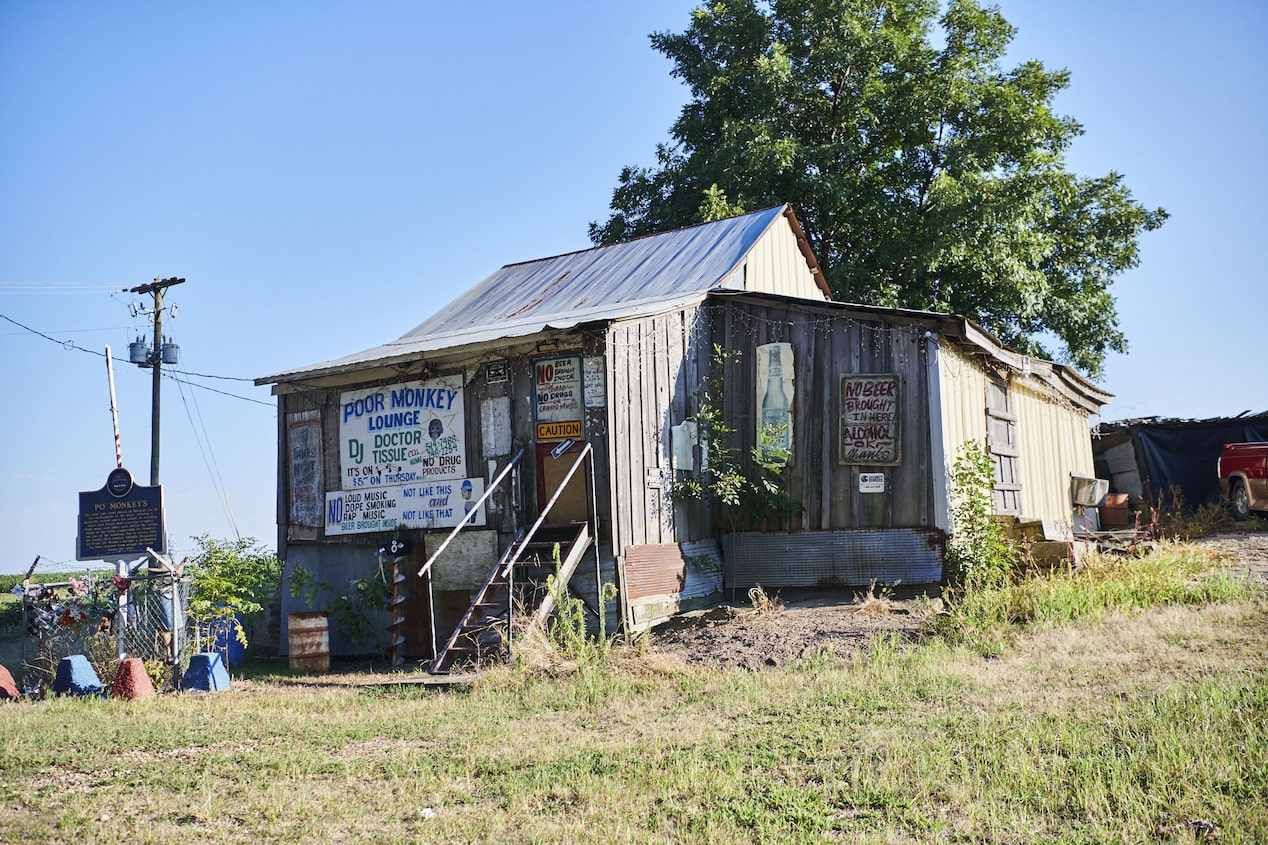
Mr. Willie “Po’ Monkey” Seaberry opened this juke in 1963 and it became a true-blue mecca of music.
I’m searching for one of the last authentic juke joints in America — Poor Monkey Lounge. Often referred to as Po’ Monkey’s, it’s a former sharecropper’s shack sitting on a piece of unincorporated farmland. Mr. Willie “Po’ Monkey” Seaberry opened this juke in 1963 as a place for other cotton farmers to unwind, and it became a true-blue mecca of music. The juke recently closed following Seaberry’s passing, but relatives plan to open it back up soon. I felt I had to pay my respects to Po’ Monkey’s, but I’m happy to find my way back to the main road.
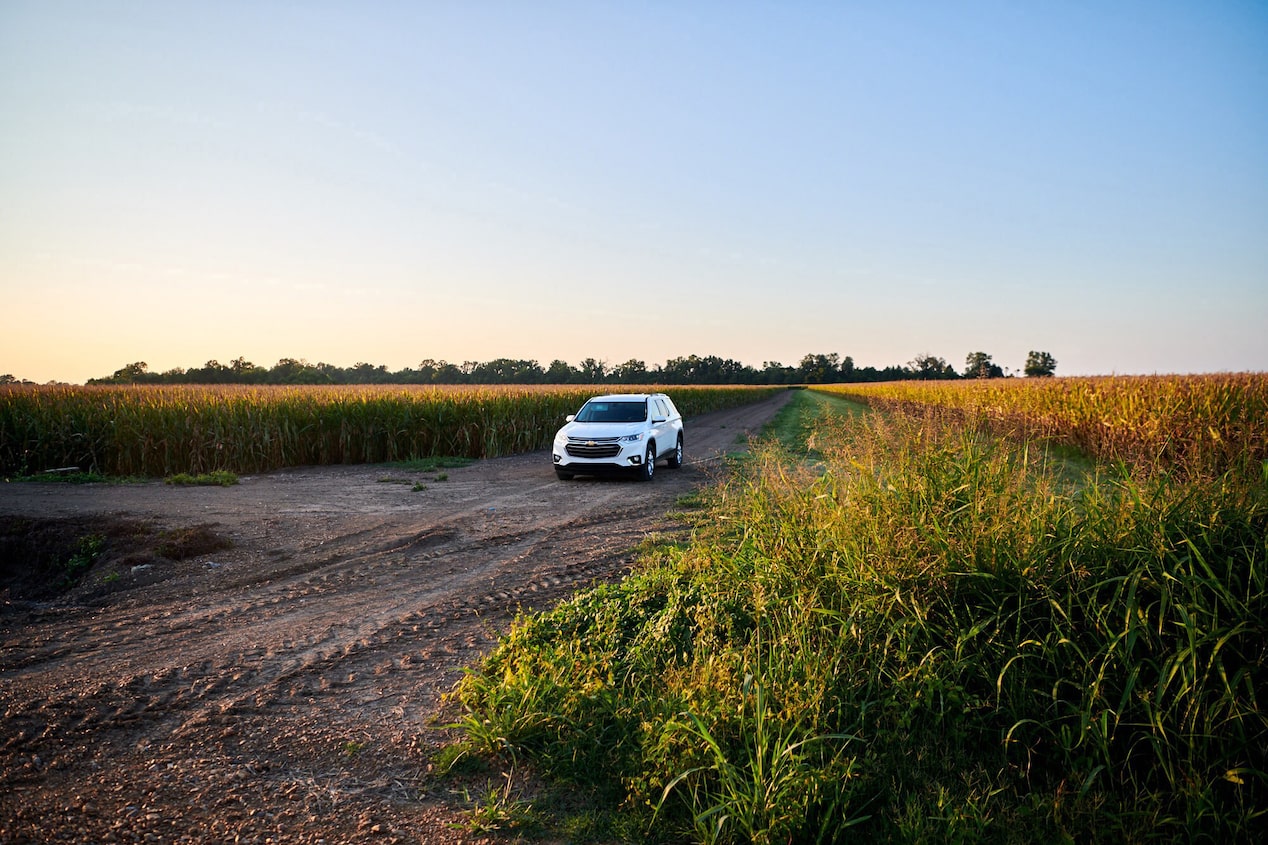
I’m traveling solo in uncharted territory more than 800 miles away from home. But if I need help, OnStar has my back.
Memphis
When I’m not exploring Mississippi by car, I’m heading just north of the border into Tennessee to discover Memphis by foot. It’s late afternoon and Beale Street isn’t popping yet, so I wander over to a historic downtown hotel to check out its view of the Mississippi River. Looking out, I hear so many blues songs inspired by the mighty river playing in my head.
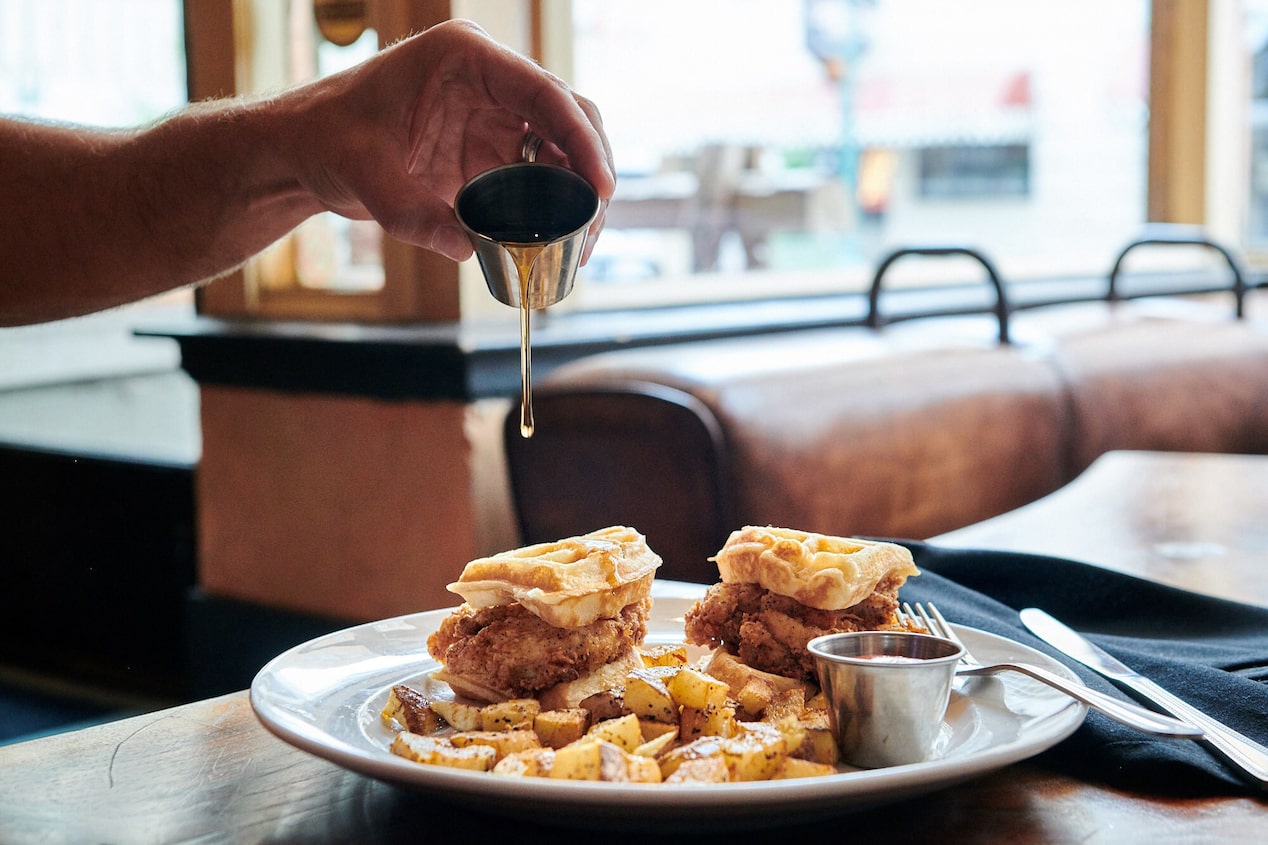
It’s the perfect place to enjoy a proper plate of chicken and waffles.
A restaurant across the street called Automatic Slims catches my eye because it’s named after a character in a Howlin’ Wolf song. Turns out, this all-day brunch spot is the perfect place to enjoy a proper plate of chicken and waffles, plot my course for tomorrow and glean a few inside tips from locals. Rule number one: always talk to strangers when you’re a stranger in a strange land.
At night, I hit all the spots around Beale Street and hear country blues, Memphis soul, boogie, and acoustic and electric blues. I spend some quality time talking with the sound engineer at B.B. King’s Blues Club about the local scene. We stop talking only to behold the vocal artistry of Angela Adkisson and The King Beez.
“I’ve played all over the world,” Adkisson tells me on a break. “But there’s nothing quite like playing back home in Memphis.”
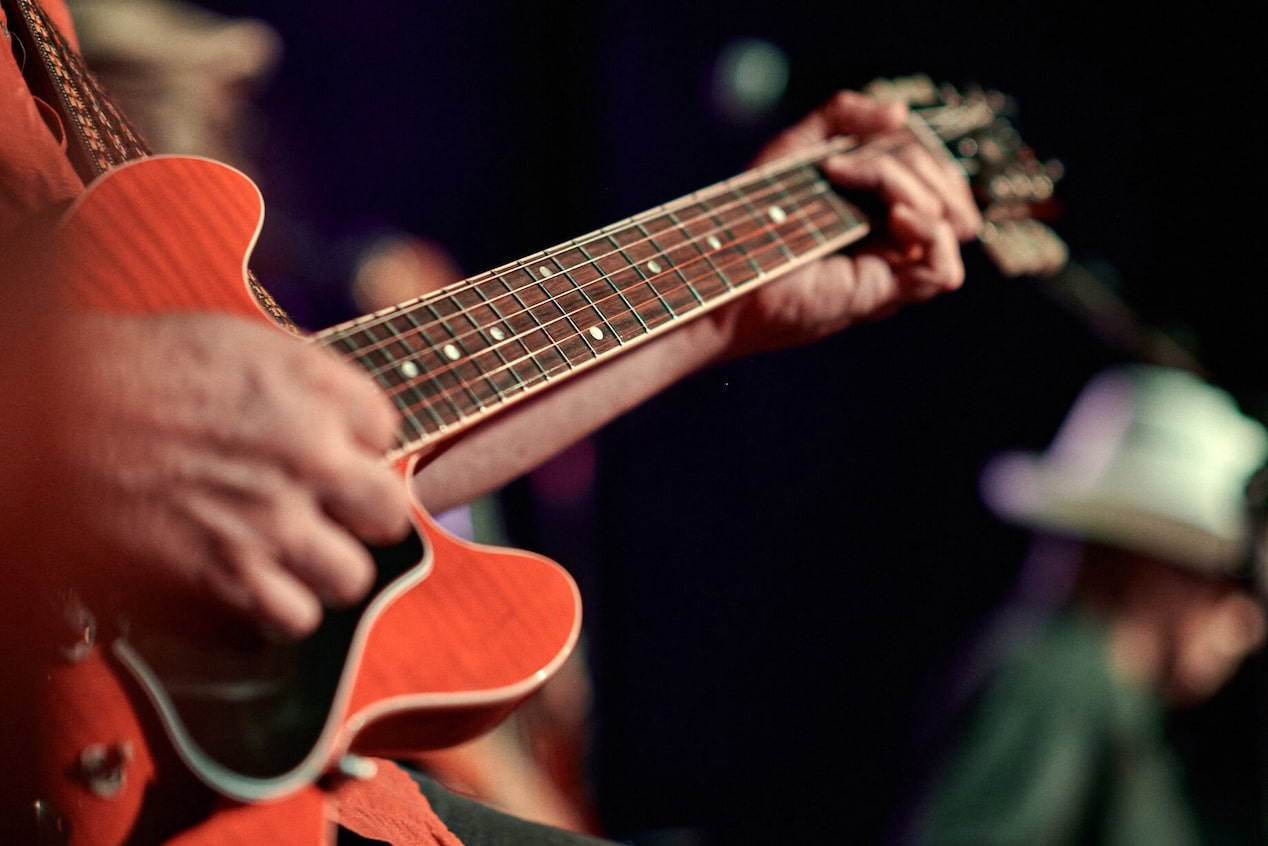
I hit all the spots and hear country blues, Memphis soul, boogie, and acoustic and electric blues.
Clarksdale
I’m navigating my way to the once bustling, then sleepy and now quietly resurging city of Clarksdale, Miss. It’s a must stop for all blues hounds on the trail. On my way into town, I pass an abandoned juke joint and it reminds me of all the iconic musicians who were born or spent time here. Guys like Muddy Waters, Ike Turner, W. C. Handy and the man who inspired this very trip — Robert Johnson.
Some things in Clarksdale just don’t change — the food is hot, the drinks are cold, and blues music is bountiful.
A sign for Deak’s Mississippi Saxophones & Blues Emporium catches my eye. I walk inside and the room is half workshop and half living room.
Deak Harp is sitting behind his bench, tinkering with one of his custom-made harmonicas and talking with a friend. I feel like I’ve walked into someone’s house unannounced. But the New Jersey native shows me some Southern hospitality, inviting me in to share stories about life on the road with harmonica hero James Cotton. Next thing I know, Deak is swinging a guitar over his shoulder, popping a harmonica rack over his neck and ripping into an electrified hill country blues original, keeping time by rocking from one big old boot to the other. Deak learned harmonica from Cotton, who learned from the iconic harp player Sonny Boy Williamson II. The third-generation bluesman leaves me with something to think about as I walk out the door. With East Coast grit, he smiles and says, “Watch out, man — a lot of folks who come to just visit Clarksdale wind up moving here.”
Blues music traveled across America by train. First across Mississippi, then to places like Texas, Memphis, Chicago and Detroit. You can hear the chug of the engine in choppy guitar rhythms and the howling smokestacks in so many wailing harmonicas. Walking along the tracks downtown, I come to the old Clarksdale train station, which now houses the Delta Blues Museum. Turns out it’s a great place to beat the heat and brush up on blues history before heading across the street to the Ground Zero Blues Club.
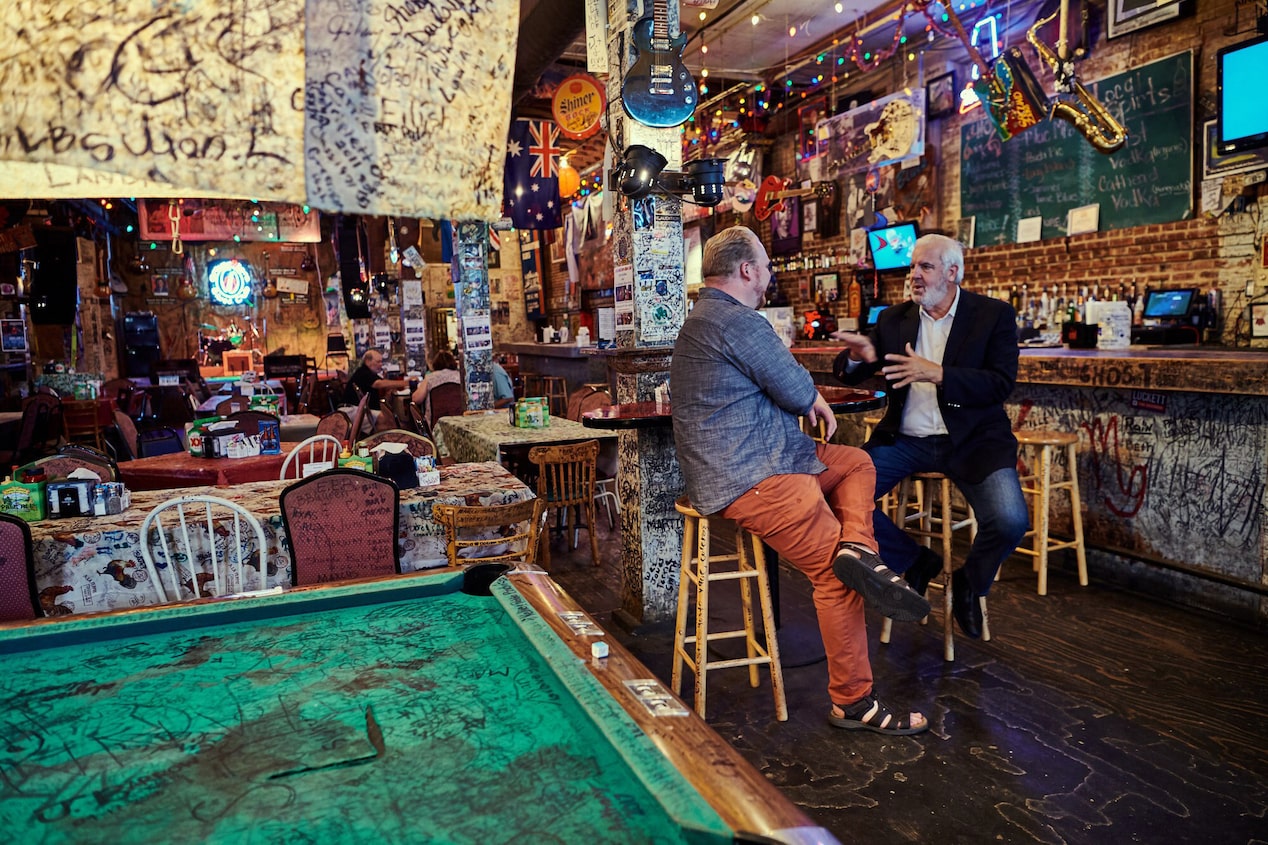
I spend time with Luckett getting schooled on Mississippi culture, and all the while a band grooves from the stage.
I hear the music and smell the barbecue smoke before walking in. Co-owner Bill Luckett is holding court. I quickly learn the kitchen serves up righteous Delta cuisine (the hot tamales and fried pickles are on point) while Luckett dishes out world-class conversation. He’s a man of a million stories, like the one about the time he ran for governor. He’s got a ton of great ones that start with the line, “Did I tell you about the time so-and-so came in here?” I spend time with Luckett getting schooled on Mississippi culture, and all the while a band grooves from the stage.
Some people say Robert Johnson made a rather devilish deal here in Clarksdale, near a crossroads over by the train tracks. Here’s one iteration of his ill-fated tale: Then just a budding guitarist, Johnson is said to have gone for a stroll down a dirt road with his guitar when he came across a rather large man he’d never seen before. The man asked Johnson if his guitar needed tuning. They were standing at the crossroads — and they struck a deal. But I’ve done my research, I’m burning daylight and Dockery Farms is on tomorrow’s itinerary.
For now, it’s back to Memphis.
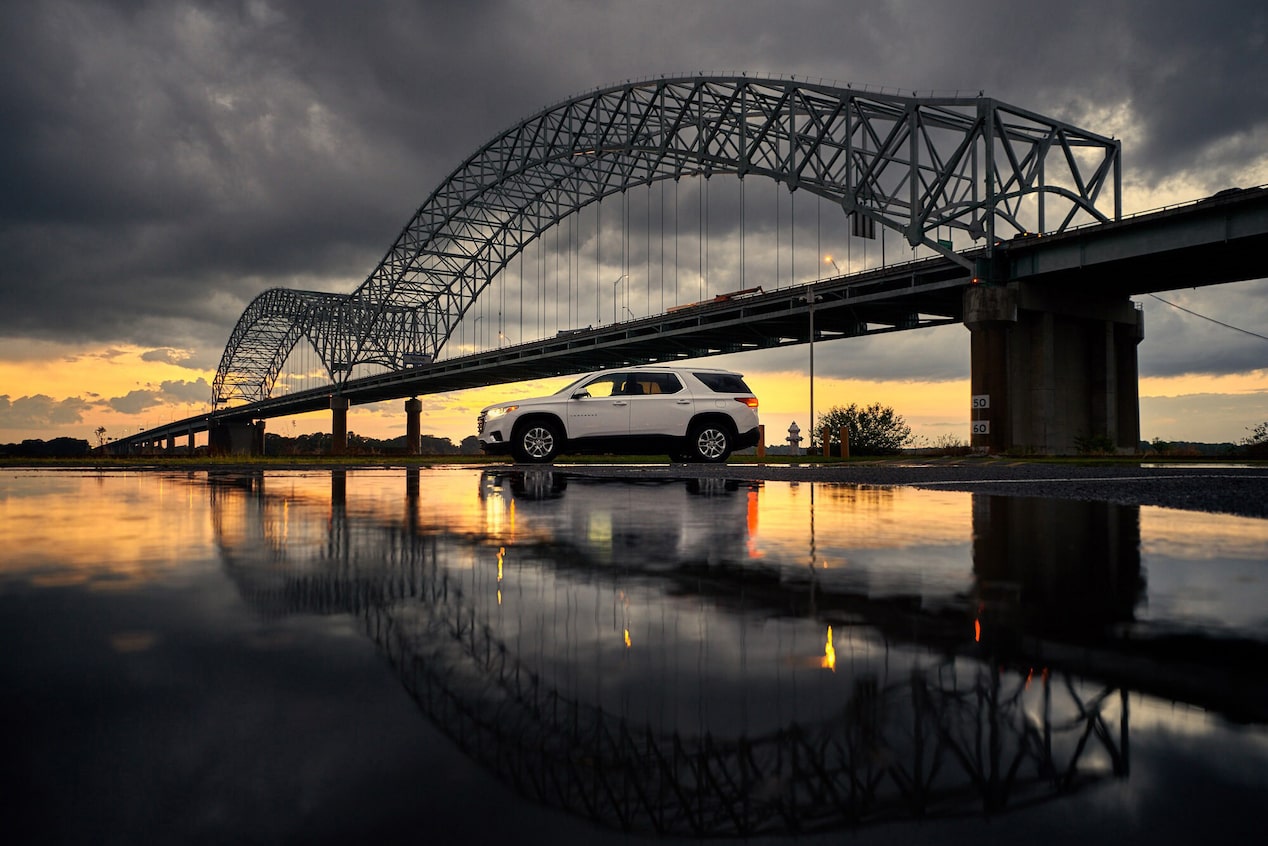
The fading sunlight casts a stunning light on the Hernando de Soto Bridge after a passing rain shower.
Hunger Payne’s
Before dipping back down to Mississippi to check out Dockery Farms, I head over to a Memphis eatery tucked into a neighborhood on the other side of town. It’s the first time I’ve had to drive around the city and the guy who recommended the place — one of those strangers I was talking about — said it wasn’t in a part of town I would want to get lost in.
“That said, it’s well worth the trip,” he told me. “Might be the best barbecue you ever eat.”
“It’s all good,” I told him. “I have OnStar.”
At Payne’s Bar-B-Q, not much has changed since it opened in 1972. Today, the mother and son team of Flora and Ron Payne is kicking out wildly delicious ribs, smoked sausages and chopped pork sandwiches. Portions are generous. The dining room is bare-bones. And so is my plate.
It’s the soul food I need to fuel my next journey back down into Mississippi.
Down to the crossroads.
Dockery Farms
Sandwiched between two old Mississippi blues towns — Cleveland and Rulelville — is the historically fundamental Dockery Farms Plantation. It’s a beautiful relic of a bygone era. I’m standing in the place where Charley Patton learned how to play the blues, and then went on to influence other players, such as Willie Brown and Eddie “Son” House.
By the 1920s, Dockery Farms was a hub for blues players, and the next generation came to get schooled on the music, including Howlin’ Wolf, Pops Staples and Robert Johnson.
I’m sitting on the porch they played on, music softly piped over the speakers, feeling more connected to the music than ever — connected to the land, to the very lives these men lived and to the songs that documented their experiences in Mississippi.
Torn between not wanting to leave but recognizing how late it’s getting, I consider calling an OnStar Advisor to see about booking a room for the night.
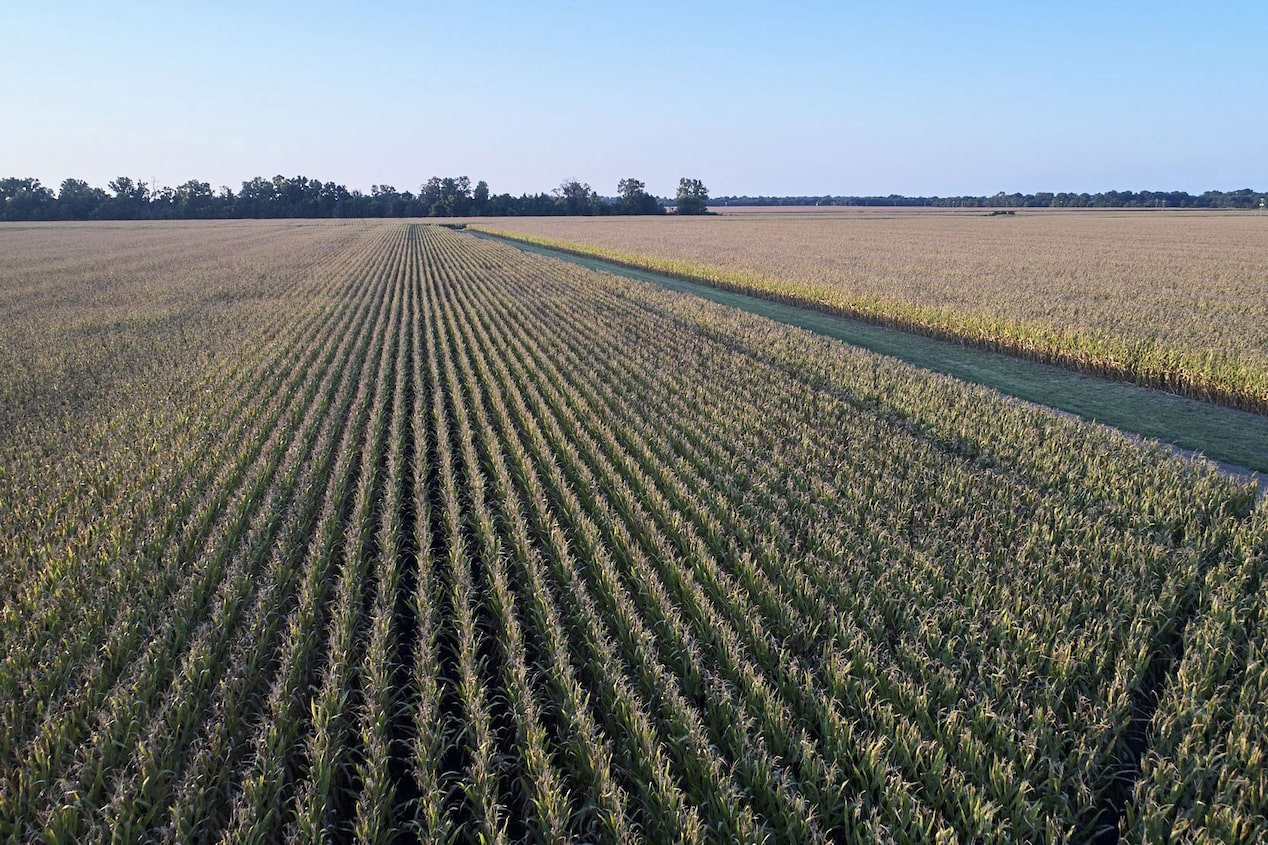
This is desolate. Aside from the wind passing through rows of corn that disappear into the horizon, there is no sound.
With waning light and, once again, no apparent street signs, I cross over the highway and start driving down a dirt road. If I drive far enough, I’ll come to a crossroads. The crossroads? Some folks think so — but nobody knows for sure.
This is desolate. Aside from the wind passing through rows of corn that disappear into the horizon, there is no sound.
I find a dusty intersection.
I think about the lore surrounding this place and try not to freak myself out. I think about how dark it’s going to be soon. I think about how unfamiliar I am with the area. I think about whether I even know which way is north. And then I think about how grateful I am for OnStar. Because nothing is going to stop me from getting to the crossroads — not even the ominous row of blackbirds standing in a line, blocking the road in front of me.
Yes, for real.
I get out of the truck and the birds buzz off.
After all these years, here I am.
Standing at the crossroads.
I pull my harmonica out of my pocket and start to play.
Where’s your out there?
We hope you enjoyed this story about how OnStar helped embolden a blues hound to finally make his pilgrimage to the places where the blues was born — and still lives.
Where do you feel empowered to drive with OnStar? When you’re looking to enrich your life or escape the daily grind — where’s your Out There?
Share your Out There story with OnStar right here and check out more places to get Out There on social media using the hashtag #BeSafeOutThere.
